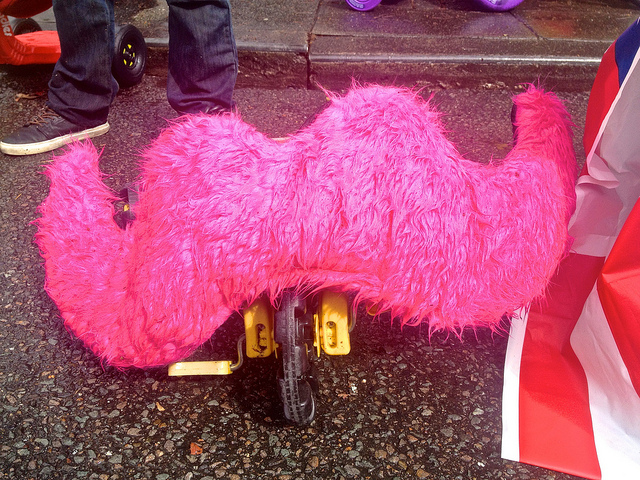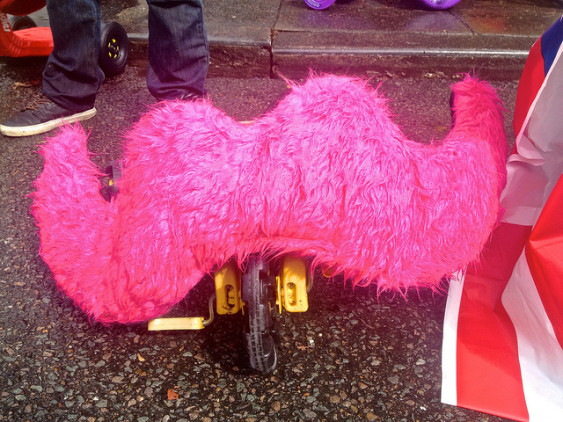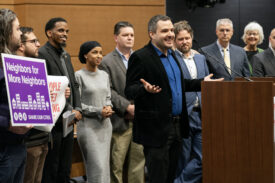Update: Lyft, Uber, Sidecar, and their supporters announced on Friday (3/28) that they will launch their own referendum to overturn the Seattle City Council ordinance that capped ride-for-hire drivers and required the parent companies to comply with a host of other regulations. If Seattle Citizens to Repeal Ordinance 124441 gathers enough signatures, the ordinance will be suspended from taking effect until a citywide vote.
If you thought the City of Seattle was going to have the last word with new regulations for ride-for-hire companies like Uber, Lyft, and Sidecar, ha! Since the city vote less than two weeks ago, entrenched parties (plus entirely new ones) have taken the fight to the courts and the voters. Here’s a quick roundup of what’s happened:
The Lawsuit
The Western Washington Taxicab Operators Association, a coalition of owners and drivers, yesterday filed suit against Uber in King County Superior Court. Geekwire fleshes out their arguments here, but the lawsuit basically claims Uber has been offering competitive services illegally and operating outside city of Seattle and King County rules on ride-for-hire operations.
It asks for damages “in amount equal to the lost fares and tips due to defendant Uber’s unlawful dispatch operation,” though it does not specify an amount. The suit also makes a dig at Uber, arguing the company:
seeks to serve wealthy, technology-connected passengers, leaving those with less means and technology to be served by the regulated taxicab drivers. Not only does Uber divert customers away from the lawful, regulated services provided by the Operators Association’s members, it seeks to divert the most lucrative and most able to tip customers, further depriving regulated drivers of means to make a living.
Uber dished it back with this statement on the suit:
Uber remains focused on connecting people with the safest and most reliable transportation options in Seattle and protecting the thousands of small business jobs created by our technology platform. It is unfortunate that the taxi industry is not similarly focused on what really matters: safety of riders and opportunity for drivers.
The Initiative
Meanwhile, initiative activist Elizabeth Campbell has come out of the woodwork again to file an initiative that would repeal the caps the city council imposed on the Transportation Network Companies (TNCs) and reduce the license fee that the companies would pay to the city from $50,000 to $500. It would also allow them to extend their app technologies to other users, such as school buses and charter operators, and allows them to keep insurance policies under seal.
But as Goldy points out in this post on HorsesAss.org, this particular appeal to the voters may not be what the TNCs had in mind:
Of course, Campbell is a bit of a self-serving pro-business crackpot with a habit of filing initiatives on spec and then hoping the corporate contributions roll in…So it’s not clear whether Lyft, Sidecar, and Uber were even aware of this initiative before it was filed, let alone whether they would lend it financial support.
The Crash
And, finally, here’s a fascinating first person account (also from Geekwire) about what happens after you and your two kids (including a six-week-old baby) get rear ended during a Lyft ride. It makes me wish I had my own personal “Trust and Safety Team” looking out for my family in the chaotic aftermath of an accident.









ClaimsAdjuster
Langston: “If Seattle Citizens to Repeal Ordinance 124441 gathers enough signatures, the ordinance will be suspended from taking effect until a citywide vote.”
Not necessarily. If the City Attorney rules that the TNC rules cannot be overturned by a referendum, the ordinance will go into force.
There are certain restrictions on referendums. The legal issue would be whether this referendum is attempting to overturn an administrative power power specifically delegated to local jurisdictions by the state under RCW 46.72.001. According to an opinion by the City Attorney:
What is the difference between legislative and administrative?
According to this Washington State Initiative and Referendum Guide:
For-Hire laws have of course been part of RCW and SMC for decades. The City Council just passed revisions to the existing SMC. Furthermore, the TNC rules are part of a pilot program, hence temporary and therefore administrative.